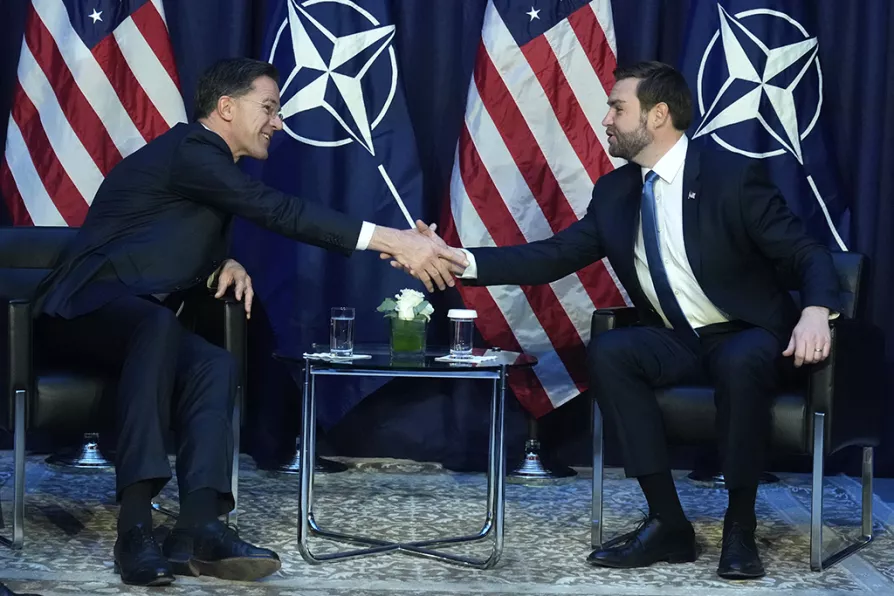This weekend, the NEU holds a special conference to debate changing its approach to organising teaching assistants, which a 2017 TUC agreement forbids. General secretary DANIEL KEBEDE outlines the choices before delegates

 United States Vice-President JD Vance, right, shakes hands with NATO Secretary General Mark Rutte during a bilateral meeting on the sidelines of the Munich Security Conference
United States Vice-President JD Vance, right, shakes hands with NATO Secretary General Mark Rutte during a bilateral meeting on the sidelines of the Munich Security Conference
THE current economic and political crisis engulfing the EU has its roots in the very inception of the organisation and the influence of the US in its creation. The European Iron and Steel Community formed in 1951, which eventually morphed into the European Union in 1992 was heavily based on the ideas of the right-wing economist Friedrich Von Hayek.
Hayek wanted to limit state intervention in the economy and prevent, from his perspective, distortions of free trade and competition deriving from collective action. He supported the idea of creating a supranational government, seeing it as a way of limiting the power of the nation states.
In his own words: “Interstate federation that would do away with the impediments as to the movement of men, goods and capital between the states and would render possible the creation of common rules of law, a uniform monetary system, and common control of communications.”

Starmer sabotaged Labour with his second referendum campaign, mobilising a liberal backlash that sincerely felt progressive ideals were at stake — but the EU was then and is now an entity Britain should have nothing to do with, explains NICK WRIGHT

In the first half of a two-part article, PETER MERTENS looks at how Nato’s €800 billion ‘Readiness 2030’ plan serves Washington’s pivot to the Pacific, forcing Europeans to dismantle social security and slash pensions to fund it












